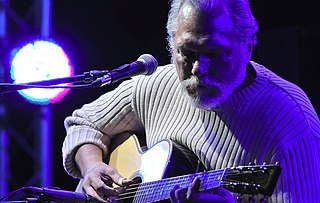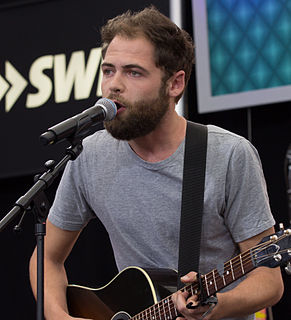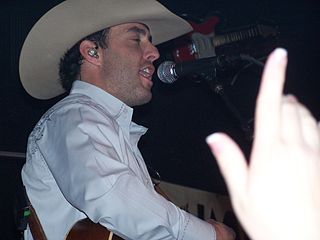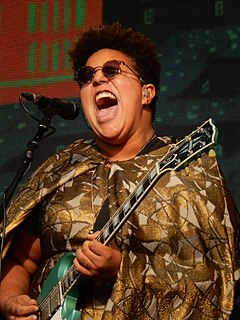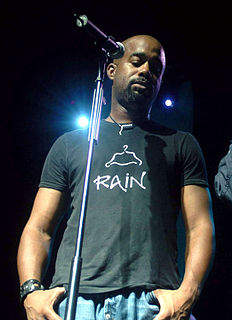A Quote by Don McLean
When people ask what 'American Pie' is about, they're missing the point. The song isn't about the lines themselves - it's about what is between the lines. The song is about what isn't there.
Quote Topics
Related Quotes
I started with the chorus of that song, kind of like a fun bouncy thing to play, and then one of the lines popped up: 'I got things to do today, people to see, things to say.' I wrote about a dozen verses for it, but no song needs to be that long unless you're Bob Dylan. So when we recorded it I started to tear it down to some of the lines I thought were the funniest.
I want my music to be something that people use in order to access parts of themselves. So in that sense, every piece I write is about all emotions at once, about the lines in between. It's never only about one thing or another. It's emotionally getting at those things that we can't really describe - things for which we don't have labels. So yes, it's about something, and it has a use. It's neither about nothing nor about something concrete - it's about what you bring to it as a listener.
I think every time I play, every show is different, and I think that at a certain point a song isn't about you anymore. It's about the audience, it's about how the song has worked its way into other people's lives and that kind of keeps the meaning of the song new, because you see it reflected in other people every night.
[Barack] Obama can draw lines for himself and his country, not for other countries. We have our red lines, like our sovereignty, our independence, while if you want to talk about world red lines, the United States used depleted uranium in Iraq, Israel used white phosphorus in Gaza, and nobody said anything. What about the red lines ? We don't see red lines. It's political red lines.
I don't like it when people ask me what my favourite Beatles song is. I always get that. First of all, I don't like having to pick a favourite thing anyway. You can't pick a favourite Beatles song! What about "Strawberry Fields"? What about "Lucy In The Sky With Diamonds"? What about "Tomorrow Never Knows"? Come on. That question is small minded to think you could even have a favourite Beatles song.
I wouldn't want someone assuming that some negative song has some truth between me and my wife. There was a song that one of my buddies sent me, and it was an awesome song. It was about this woman who had fallen in love with a man that wasn't her husband, and I love everything about the song except for the fact that I personally cannot sing it. It would kill me if someone thought I was singing it about my wife.
The interesting thing about a song like 'Bulletproof Heart' - it was [originally] called 'Trans Am' - the interesting thing about the amalgamation of that song was that the song also lived within us, like we all got to live with the song and it was around for about a year before we recorded it again, so the song got to really transform, which you don't really get to do.
You are hearing this song, and you're 16, and it's a song about love, or a girl. And then maybe there's a girl at school that you like. So you're going to be thinking about that girl. That song is sort of about that girl. The songwriter doesn't know that girl, obviously. He wrote it for something else. But there's the specific meaning with the universal again.
People are always asking, "Is this person in front of me the same on the inside as he or she appears to be on the outside? Is there congruence between what's within that person and the words and actions I'm viewing and hearing externally?" Children ask that about their parents; students ask it about their teachers; parishioners ask it about their pastors and priests; employees ask it about their bosses; and in a democracy, citizens ask it about their political leaders.


